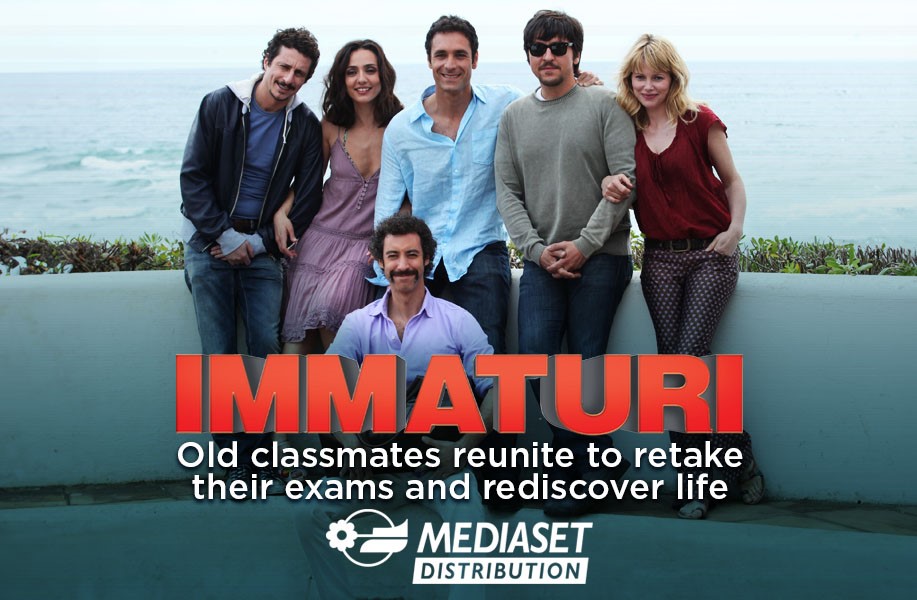In his opening remarks, Seriencamp Program Director Gerhard Maier called this a "strange time" for the industry, acknowledging that many structural foundations are currently shifting. Yet, he emphasized the power of storytelling as a guiding force amid uncertainty. "Stories that make a difference can be a compass in this time," Maier said, encouraging participants to find inspiration and avoid dwelling on the negative aspects of industry transformation.
The opening keynote came from Markus Schäfer, CEO of ZDF Studios, who echoed similar themes while reflecting on Germany's current position. While praising Germany's solid "track record" in TV production, Schäfer stressed the need for stronger strategic coordination between the industry and government. "We lack a coordinated strategy to fully tap into the global potential of our film and television industry," he said, adding that Germany still does not have a globally recognized "Made in Germany" brand for innovation, creativity, and high quality — unlike South Korea, France, Japan, or Spain.
Schäfer also touched on the potential global impact of former U.S. President Donald Trump’s “America First” policy, suggesting that diminishing worldwide acceptance of American cultural products could create new space for local and international content. “The shift in values has created a vacuum that we should see as an opportunity,” Schäfer argued, adding that Germany must actively seize it by positioning culture as a strategic economic and political tool.
One of the earliest highlights of the day was the panel Meet the European Commissioners, held at Cinema 1 and moderated by DWDL’s chief reporter Torsten Zarges. Broadcasters from across Europe shared insights into their current strategies and development priorities. Among them, Michele Zatta, manager at Italy's RAI, offered a compelling case for international co-productions.
"My colleagues have said it earlier: let's follow the story," Zatta stated. "In this world you can survive only one way — by telling the best story in the best possible way." He emphasized RAI's increasing focus on cross-border collaborations, noting ongoing partnerships with France and Germany through the Alliance but also expanding into non-European markets. “We are looking everywhere,” Zatta explained. “Today, a Finnish director is walking through Naples to scout locations for a co-production that starts in one month. Next year, we may start our first co-production with India. We’re also exploring markets like Colombia and Taiwan.”
Zatta pointed to the long tradition of international productions in Italian cinema as a foundation for this global outlook, citing the example of Sandokan, a major Italian series first produced in 1976 as a co-production with Germany, France, and the UK. “At that time, it was shot in Malaysia, Indonesia, and Thailand, and became the first Italian series sold to the United States,” he recalled. The remake of Sandokan, recently completed, involved new partners from Turkey and Spain, reflecting the unpredictable nature of today’s international co-production landscape. “It’s getting more and more difficult to guess who will be your partner,” Zatta noted.
The day ended with the premiere of Hundertdreizehn a six-part drama series co-produced by Germany's ARD and Austria's ORF, set to premiere in autumn 2025. The series delves into the profound ripple effects of a catastrophic bus accident, inspired by a statistic from the German Federal Ministry of Transport: on average, 113 people are directly or indirectly affected when a single person dies in a traffic accident.
Schäfer also touched on the potential global impact of former U.S. President Donald Trump’s “America First” policy, suggesting that diminishing worldwide acceptance of American cultural products could create new space for local and international content. “The shift in values has created a vacuum that we should see as an opportunity,” Schäfer argued, adding that Germany must actively seize it by positioning culture as a strategic economic and political tool.
One of the earliest highlights of the day was the panel Meet the European Commissioners, held at Cinema 1 and moderated by DWDL’s chief reporter Torsten Zarges. Broadcasters from across Europe shared insights into their current strategies and development priorities. Among them, Michele Zatta, manager at Italy's RAI, offered a compelling case for international co-productions.
"My colleagues have said it earlier: let's follow the story," Zatta stated. "In this world you can survive only one way — by telling the best story in the best possible way." He emphasized RAI's increasing focus on cross-border collaborations, noting ongoing partnerships with France and Germany through the Alliance but also expanding into non-European markets. “We are looking everywhere,” Zatta explained. “Today, a Finnish director is walking through Naples to scout locations for a co-production that starts in one month. Next year, we may start our first co-production with India. We’re also exploring markets like Colombia and Taiwan.”
Zatta pointed to the long tradition of international productions in Italian cinema as a foundation for this global outlook, citing the example of Sandokan, a major Italian series first produced in 1976 as a co-production with Germany, France, and the UK. “At that time, it was shot in Malaysia, Indonesia, and Thailand, and became the first Italian series sold to the United States,” he recalled. The remake of Sandokan, recently completed, involved new partners from Turkey and Spain, reflecting the unpredictable nature of today’s international co-production landscape. “It’s getting more and more difficult to guess who will be your partner,” Zatta noted.
The day ended with the premiere of Hundertdreizehn a six-part drama series co-produced by Germany's ARD and Austria's ORF, set to premiere in autumn 2025. The series delves into the profound ripple effects of a catastrophic bus accident, inspired by a statistic from the German Federal Ministry of Transport: on average, 113 people are directly or indirectly affected when a single person dies in a traffic accident.


_13028.png)







